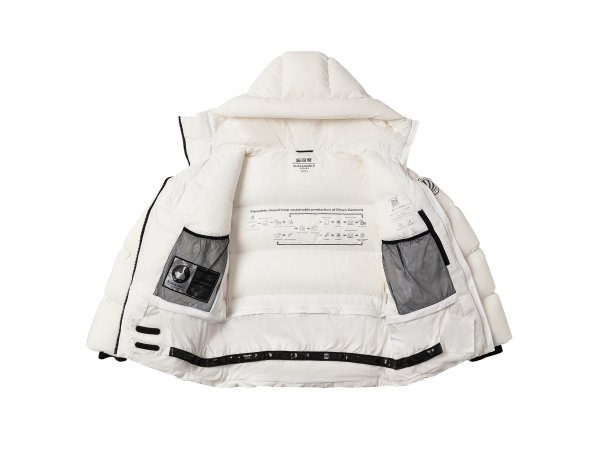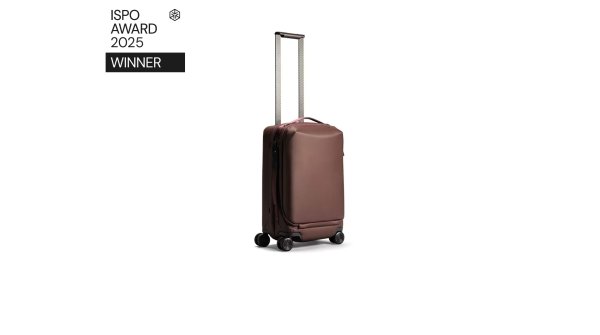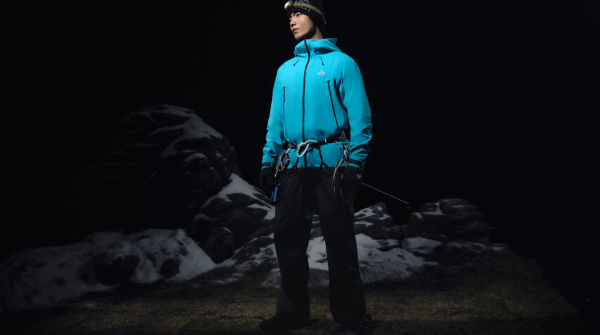Bosideng, the Chinese down product expert, has long been actively promoting the sustainable transformation of the apparel industry. Through ongoing efforts to find innovative solutions for greener products and additional measures to save energy and reduce emissions, the company has taken a leading role in promoting the industry's transition to green, low-carbon development. In August, Bosideng was awarded an "A" rating by Morgan Stanley Capital International ("MSCI") for its exemplary ESG (environmental, social and governance) practices. The MSCI ESG ratings assess how a company deals with financially relevant ESG risks and opportunities.
Sustainable change in the apparel industry started with raw materials. While recycled materials have been the focus of attention in recent years, the focus is now shifting to the permanent recyclability of materials that need to be included in the development process. With the circular economy in mind, Bosideng has developed several award-winning products made from innovative recycled or bio-based materials that are themselves recyclable. This is important because only when recyclability can be guaranteed can the cycle be closed. Only then can materials be processed again and again into new products in a way that conserves resources.
Bosideng is dedicated to the commitment to environmental sustainability, constantly seeking innovative approaches. They are actively exploring new materials and solutions to advance their eco- friendly product line. Through these efforts, Bosideng aims to minimize environmental impact while delivering high-quality products.
In fall 2023, the Eco-Design Circular Lightweight Functional Down Puffer Jacket received the ISPO Award 2023 for its sophisticated recycling solution. For this PFC-free 3L jacket with RDS-certified goose down filling, Bosideng uses a 100% bio-based PA510 nylon fabric for the outer shell and 100% recycled nylon for the lining. All other components of the jacket are also made of nylon. At the end of its useful life, both types of material can be easily separated from each other by a simple cut and can be recycled as used nylon and used goose down. This creates a closed recycling loop from material to material. The jacket was developed at Bosideng's Global Innovation Institute, which is dedicated to researching product innovations. The aim in developing the jacket was to "create a versatile garment that not only meets the highest standards of comfort and urban style, but also promotes the circular economy through the use of mono-materials and 100% recyclability," says the team in a statement.
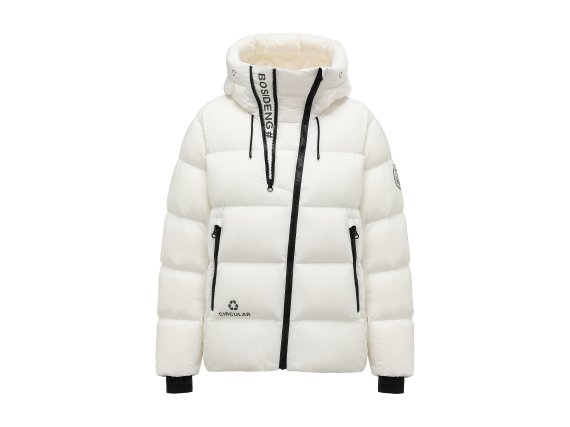
The Zero Pressure down jacket also relies on the full recyclability of all materials and was awarded the Red Dot Award in 2022. The shell, lining, thread and zipper are made from 100% recycled polyamide, which can be recycled again. The white goose down can also be reused several times after sterilization and processing. Bosideng has also found a solution to the problem of material separation that is as simple as it is decorative: When the jacket reaches the end of its useful life, it can be completely separated into the different types of material with just two cuts along a pre-drawn line on the outer fabric. In this way, Bosideng facilitates the separation of materials that is essential for cost-effective recycling.
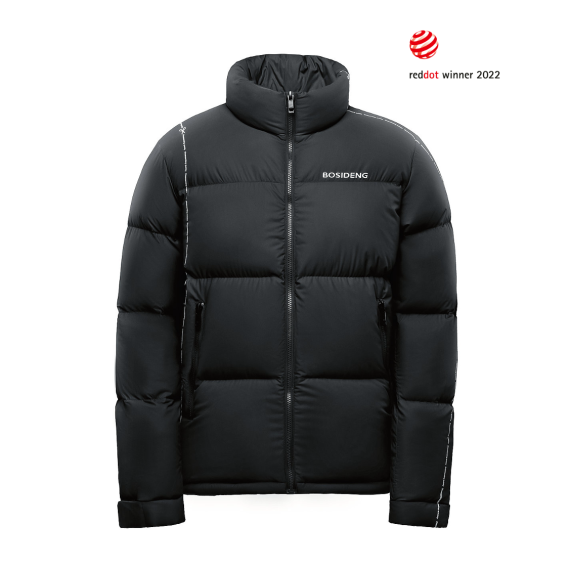
Bosideng uses partnerships with renowned specialists to further advance its own sustainability goals and support change in the textile industry. For example, Bosideng has launched down garments made from bio-based polymer fibers in collaboration with Sorona® from Huafon Group. The innovative material is partly made from plants that can be regrown annually, thus reducing the clothing industry's dependence on oil as a raw material. Compared to the production of conventional nylon 6 fibers, the consumption of crude oil can be reduced by 37 percent, energy consumption by 30 percent and greenhouse gas emissions by 50 percent. However, the innovative material not only improves sustainability, it also offers functional advantages: It is wrinkle-free, retains its shape, adapts well to the body and is long-lasting.
Bosideng has also begun incorporating Gore-Tex's ePE membrane in their products. By integrating this cutting-edge material into their product line, Bosideng not only enhances the functional aspects of their down apparel but also reinforces their commitment to environmental responsibility.

Established in 1976, Bosideng has evolved into one of China's foremost manufacturers of down clothing. Bosideng's commitment to craftsmanship and its strategic emphasis on innovation extend beyond sustainabilit achievements. Noteworthy collaborations, such as partnering with Gore-Tex and fashion designer Jean Paul Gaultier for the introduction of the co-branding series, exemplify the company's creative alliances. Additionally, Bosideng's support for China's scientific expedition team in conquering the "three poles of the world" (South Pole, North Pole, Mount Everest) underscores its remarkable achievements on various fronts.
- ISPO awards
- Mountain sports
- Bike
- Design
- Retail
- Fitness
- Health
- ISPO Job Market
- ISPO Munich
- ISPO Shanghai
- Running
- Brands
- Sustainability
- Olympia
- OutDoor
- Promotion
- Sports Business
- ISPO Textrends
- Triathlon
- Water sports
- Winter sports
- eSports
- SportsTech
- OutDoor by ISPO
- Heroes
- Transformation
- Sport Fashion
- Urban Culture
- Challenges of a CEO
- Trade fairs
- Sports
- Find the Balance
- Product reviews
- Newsletter Exclusive Area
- Magazine
